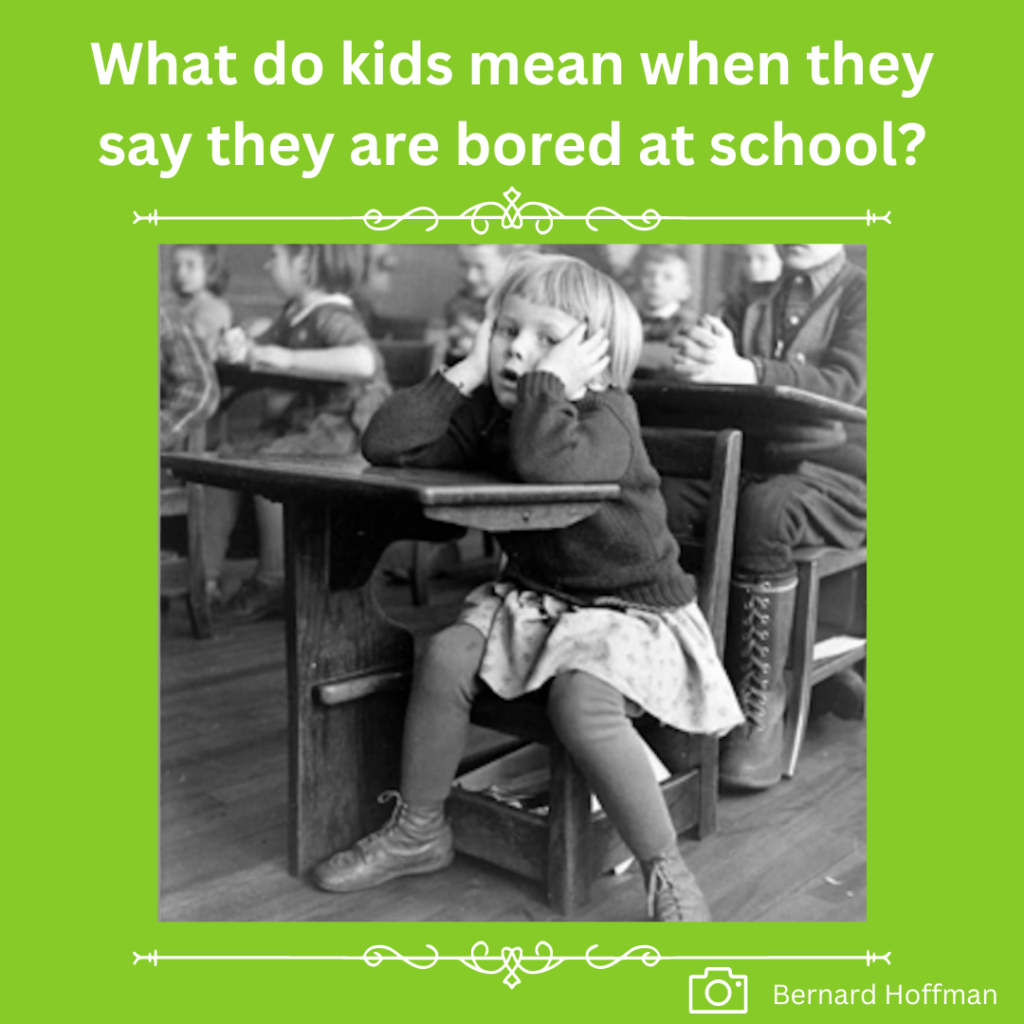In my second book “Guillo, el armadillo”, the main character, Guillo, starts school happy and excited. He wants to learn and experience new things. Towards the end of the story, he is full of anxiety, doesn’t want to go to school, and, even worse, believes he is not “school material”. What happened?
Does this resonate at home for you?
Maybe not. You might be on the lucky side, but a recent study by Michael Furlong found that one in eight middle and high school students expressed strong negative beliefs about school, describing it as boring and of low value.
Furlong and his colleagues shed some light on what students may mean when they report boredom at school. Instead of viewing boredom as being limited to a particular subject or classroom, they studied students who report broader unfavorable school attitudes, or a “School Boredom Mindset.”
According to their review of the literature, school boredom may be a signal of internal mindsets, external situations, or a deeper emotional challenge:
· Trouble with the subject matter or task demands (being over-challenged)
· A need for more or new sources of stimulation (being under-challenged)
· Limited interest or motivation in a particular subject
· A mismatch between a student’s ability and the skill required to complete a task.
· A low perceived value of what is being taught.
· Disengagement and dissatisfaction
· Helplessness and sadness
· Depression, anxiety, apathy
What can you do as a parent if you think boredom is impacting your child’s well-being?
· Don’t make assumptions. Instead, ask open-ended questions like, “What do you mean by boring?”, “Why do you think school is boring?”, “Tell me more, please”.
· Find out what causes the feeling by asking questions like: “Is there a time at school when you are not bored?” “When did school start feeling boring to you?”.
This will help you gauge if the issue is that school is challenging, not so challenging, or if your child is having problems at a social or emotional level. You will be better informed to get the right help.
What to do as an educator or an institution?
· Get to know your students. What are their passions and talents?
· Use that to design your curriculum, evaluation formats, and your school culture in general.
· Ask students for feedback.
At the end of my story, “Guillo” discovers his unique talent, and he is thrilled. When kids feel that they are valued, supported, and that they have something to contribute to their learning environments, school becomes fun.
If you would like to read more about this, I recommend these books: “How Children Fail” by John Holt: https://www.amazon.com/Children-Fail-Classics-Child-Development/dp/0201484021 and “Don’t let School get in the Way of Education.” by Dr. Anane Olatunji. Releasing in 2024. Sign up to https://www.droinspires.com/ and receive a free chapter.
